Children trembling with fear, their eyes streaming from an arid yellow wave of tear gas billowing through the barriers. An elderly man crumpling in on himself as he suffers a panic attack in a crushing crowd and cannot move. Women being kettled by state-employed bullies with reinforced shields.
No, not in a riot, a brawl, or a war. This was the UEFA Champions League final in Paris on Saturday evening.
These were human beings on a fun night out, wanting to support their football team alongside family and friends, who were treated like feral animals for having the temerity to try to enter the stadium for a special football fixture they paid hard-earned money to attend.
From the moment fans disembarked trains travelling from the Gare du Nord to Saint Denis on their way to the Stade de France, they were treated as cattle by disinterested and disdainful police offers who herded them into an enormous queue beneath a flyover.
After thousands were forced to spend an hour at a standstill under a bridge without access to toilets or water in 22-degree heat, the ticket checks that had been taking place at the end of the underpass were abandoned, meaning anyone and everyone was permitted to enter the area around the stadium whether they had a ticket or not.
From there, the situation worsened. Turnstiles were closed by stewards at around 6:30pm local time, two-and-a-half hours before kick-off, without warning or any explanation. The same stewards then abandoned their stations, refusing to communicate with perplexed supporters who had arrived early to enter the stadium in good time and enjoy the atmosphere.
What followed was carnage on a scale which was dangerous to the extent that the idea of lives being lost was at times realistic.
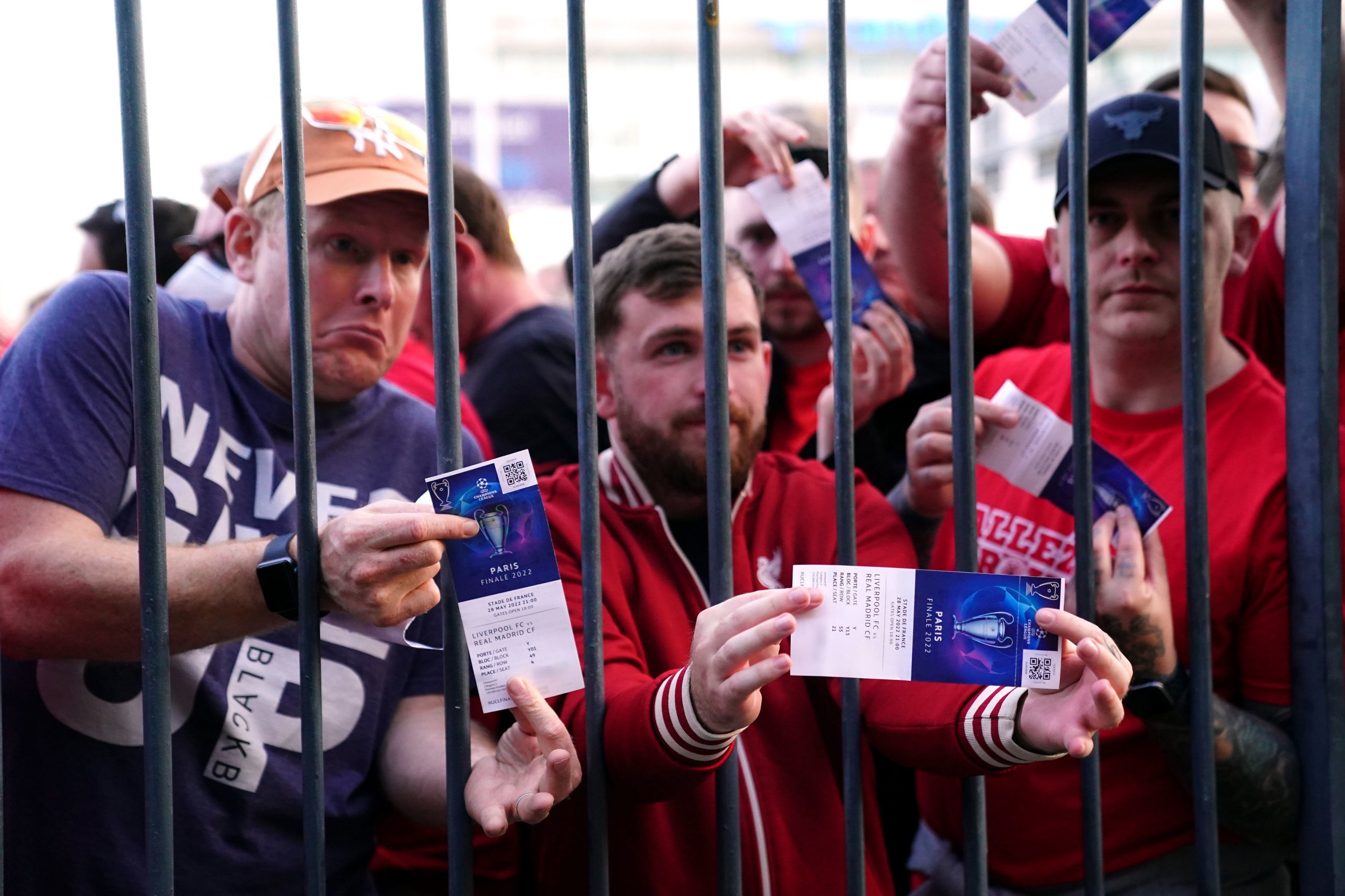
More fans arrived as kick-off approached, and an increasing number of local teenagers decided to chance their arm at climbing the barriers to enter the stadium. That meant the crowd trapped outside the turnstiles swelled, bodies pressed increasingly tightly up against one another, and people were having to actively modulate their breathing for their own safety.
Still no support from stewards or police officers arrived. Fans, now having gone almost three hours without access to toilet facilities or drinking water, were becoming increasingly irate that they were being refused entry to a football match for which they had legitimately purchased a ticket and had arrived way ahead of time.
I spent two hours and 45 minutes locked outside Gate Z along with other Liverpool supporters, with no idea why we were being refused entry, why the turnstiles were unmanned, and whether we were actually going to be able to enter the stadium we had paid to access at any point.
The prospect of a serious crush was climbing with every passing minute, as a combination of confusion, panic and more bodies increased the intensity of the situation.
European football governing body UEFA chose this point of the chaos to release a statement blaming the ‘late arrival’ of fans for the chaos and danger to life, despite all of the evidence to the contrary. In a subsequent statement, UEFA switched its fan-blame cliché from the timekeeping of supporters to ‘ticketless’ people entering the stadium.
Eventually, after two delays to kick-off in the most pre-planned and anticipated fixture in global club football, the gates were opened at 9:15pm and police wielding batons thrust fans towards whichever entrance point they deemed fit.
Some fans with valid tickets were asked for bribes by stewards, a majority of them between the ages of 16 and 20 by the looks of things and almost certainly being paid little more than minimum wage, in order to enter the stadium.
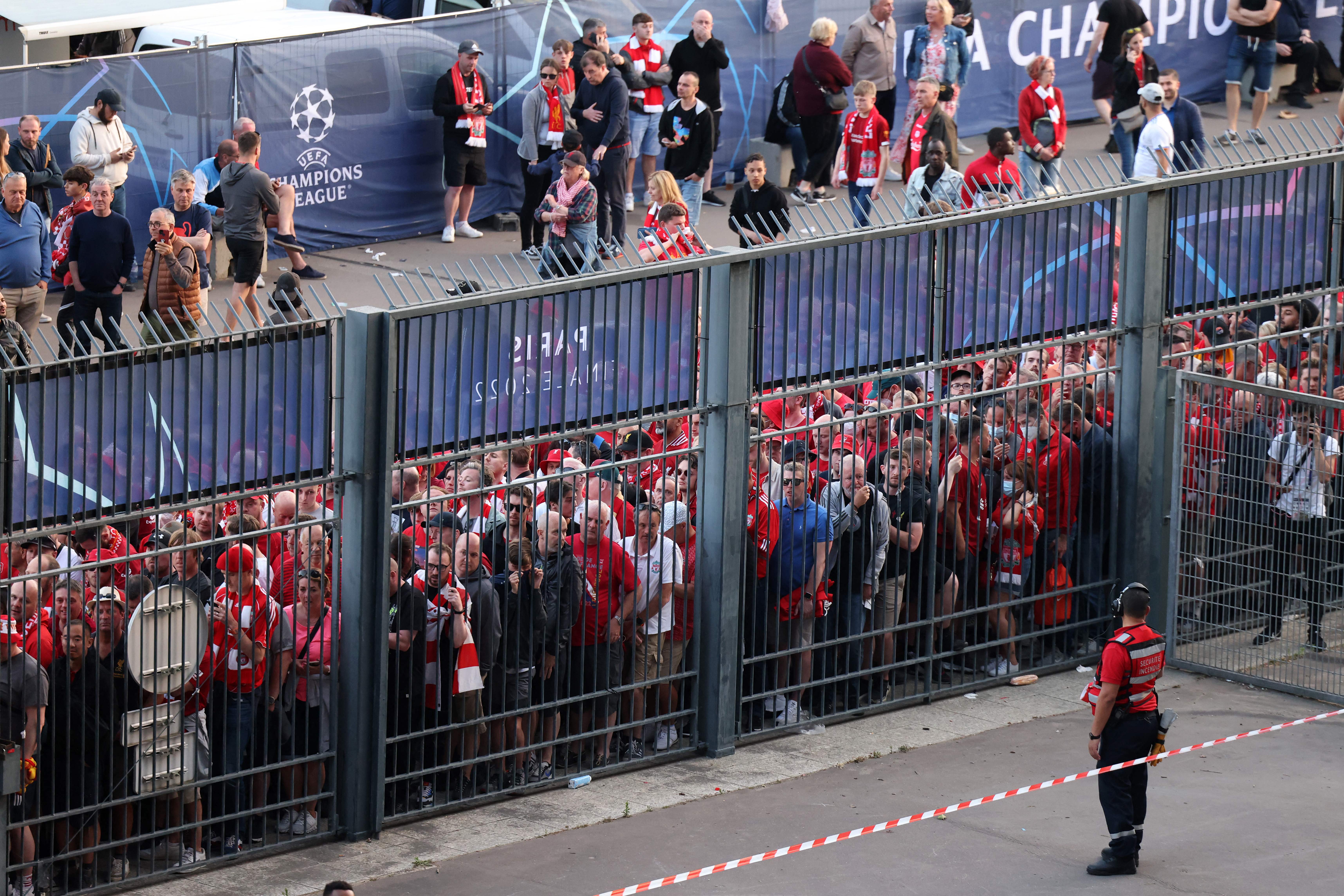
Inside the Stade de France there was no atmosphere to speak of. Ashen faces glanced at one another, brief nods were given to indicate that people were shaken but physically unharmed, and fans texted the friends and family members they had lost sight of in the havoc to check on their safety.
The match was played, and Liverpool lost, but none of it really mattered anymore. I felt deeply ill throughout the 90 minutes, unable to concentrate on passages of play with the fear and panic etched on people’s faces repeating over and over again in my mind. Those football fans, people who wanted to attend a game and back their team to the hilt, feared serious physical harm or worse and the terror was painfully visible.
On the way out of the stadium, a number of fans were mugged and slashed in the street, with the police presence now conspicuous by its absence when it was needed most.
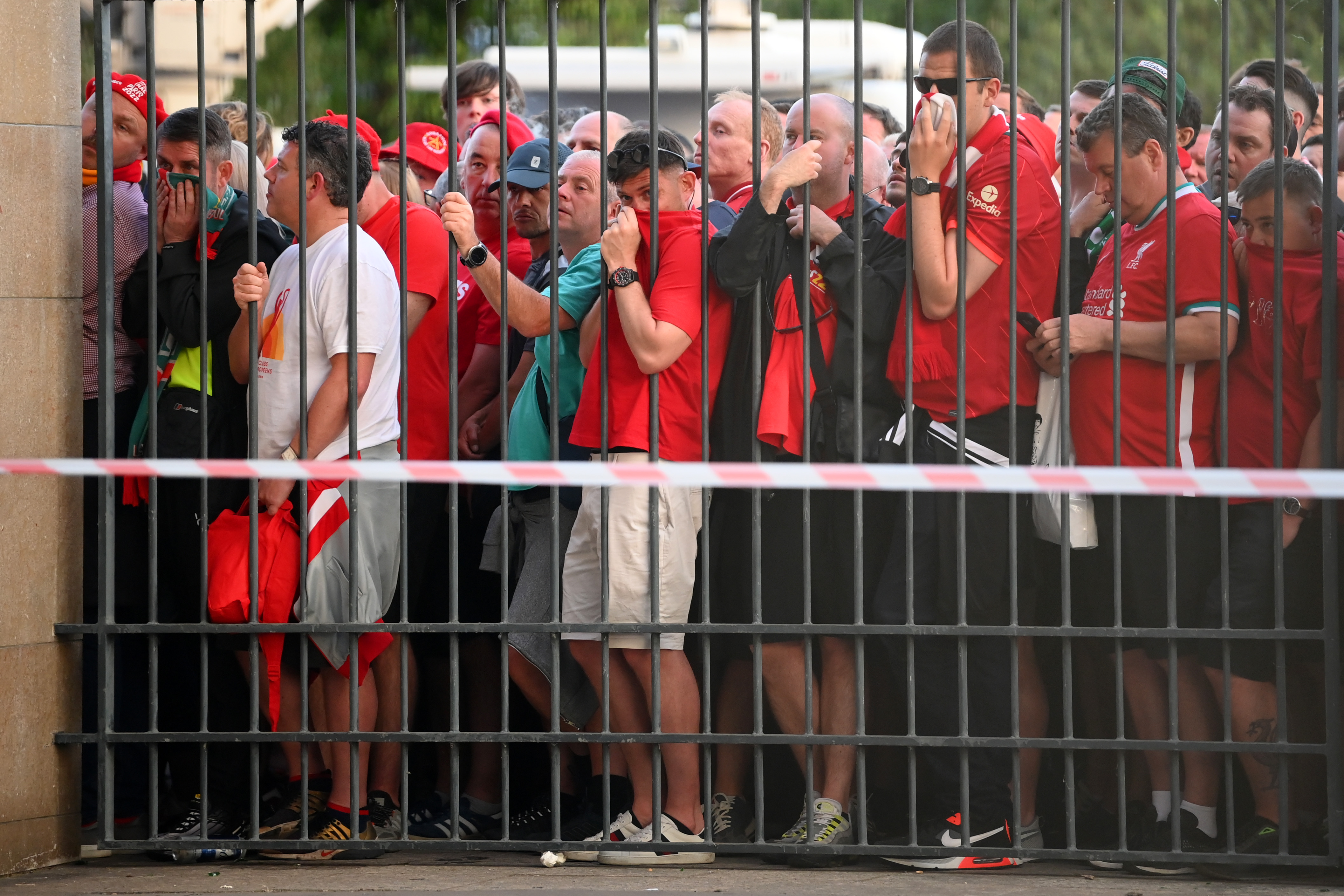
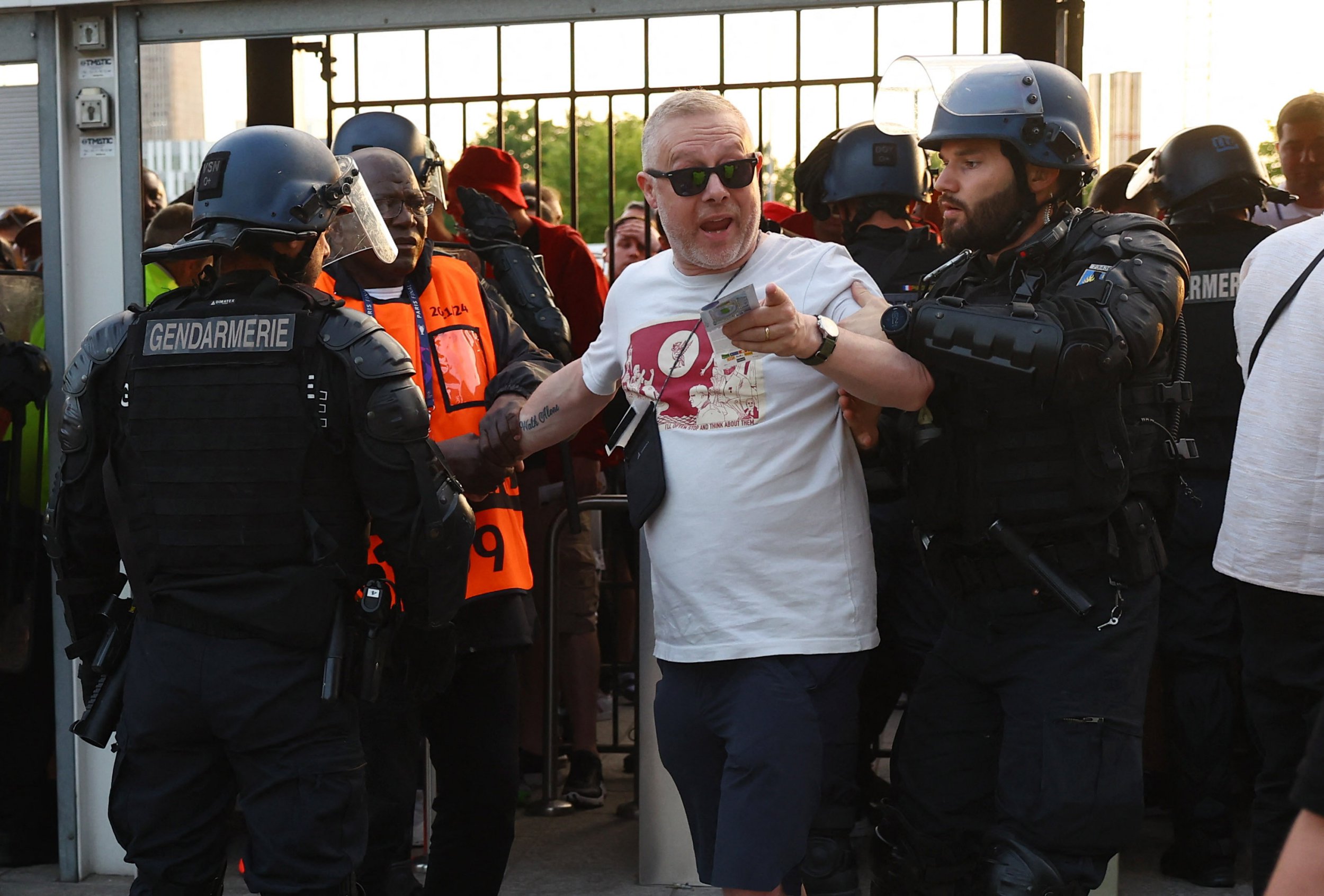
This was a fundamental failure of crowd management on an immense scale. UEFA, the municipality of Saint Denis, the French police, its gendarmerie, and the state as a whole all failed in their duty to protect human beings in their care. The response from UEFA, the police, and the French minister for sport Amélie Oudéa-Castéra – who blamed ‘the English’ for the violence which was done unto fans – is unbelievable. It is quite frankly ludicrous that anybody working for any of those institutions would think they did their job properly on Saturday night.
The Emmanuel Macron administration which has led France since the former banker’s election as president in 2017 has employed a consistently heavy-handed and often downright barbaric approach to policing throughout his tenure. Last September the five-foot-six centrist was forced to announce increased oversight of the police in the face of accusations of systemic brutality and racism in his forces.
French football endured a troubled season once crowds returned following closures due to the Covid-19 pandemic. Players were assaulted on the pitch by fans during a fixture between OGC Nice and Marseille, while various clubs were given orders to close their stadiums to spectators in the wake of disorder. The combination of the police’s increasing propensity for violence under Macron in general and the response to those incidents in Ligue 1 fixtures played a significant role in the treatment of Reds fans on Saturday, unquestionably.
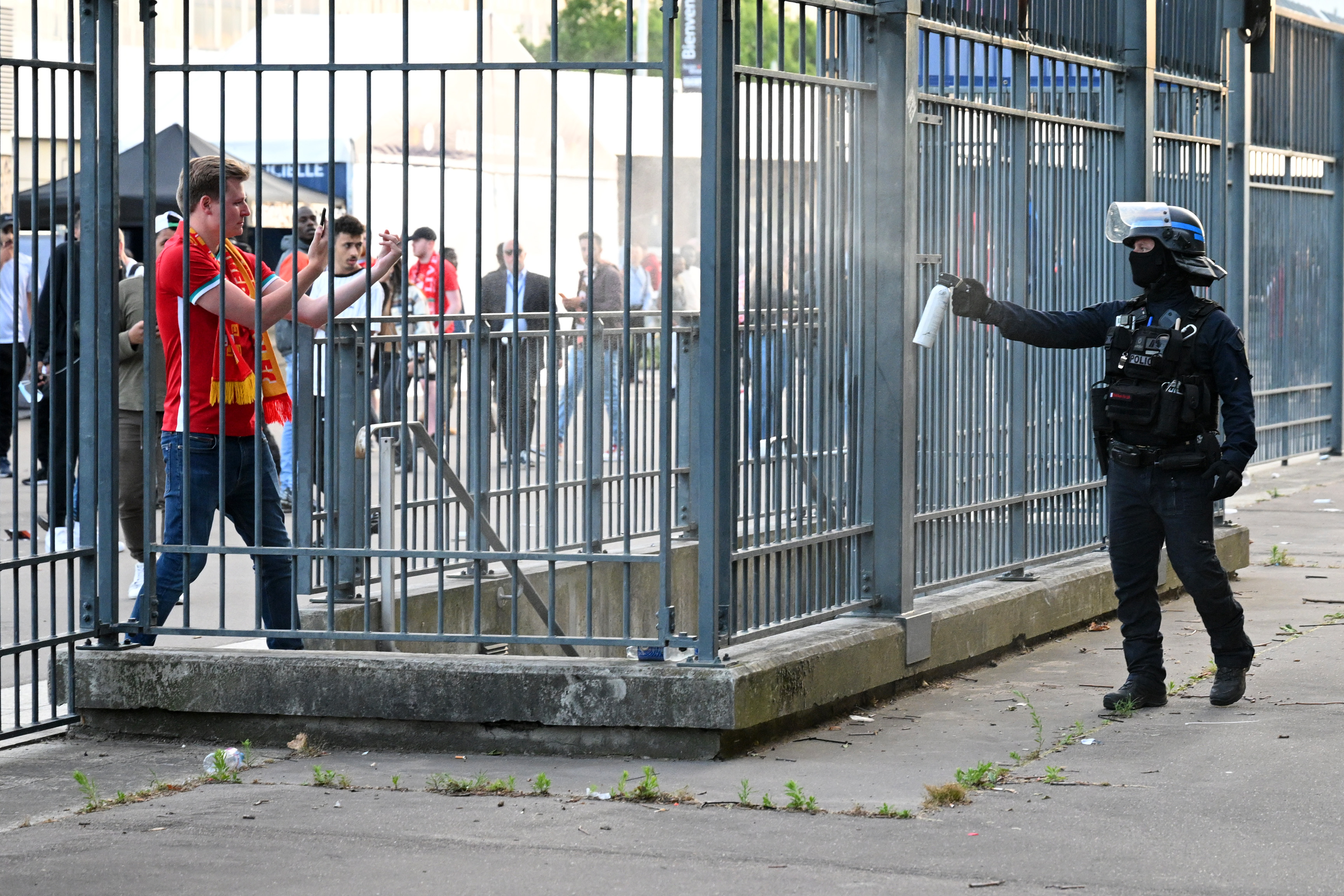
Now, a thorough independent investigation must take place in order to establish when and where the authorities made their errors, and in turn to ensure that nothing akin to this happens to any set of football supporters in the future. But the probability of a sincere analysis happening is ultimately very low.
As soon as reports of difficulty entering the ground and safety problems began to be made by fans, some followers of other football clubs immediately took it upon themselves to shift blame to Liverpool supporters, using disproven and offensive theories and jibes about the Hillsborough disaster to support their unfounded claims.
The reality is that this could easily have been fans of Manchester United, or Chelsea, or Bayern Munich, or any other European football club with fans who had purchased tickets to a match only to be treated like cattle.
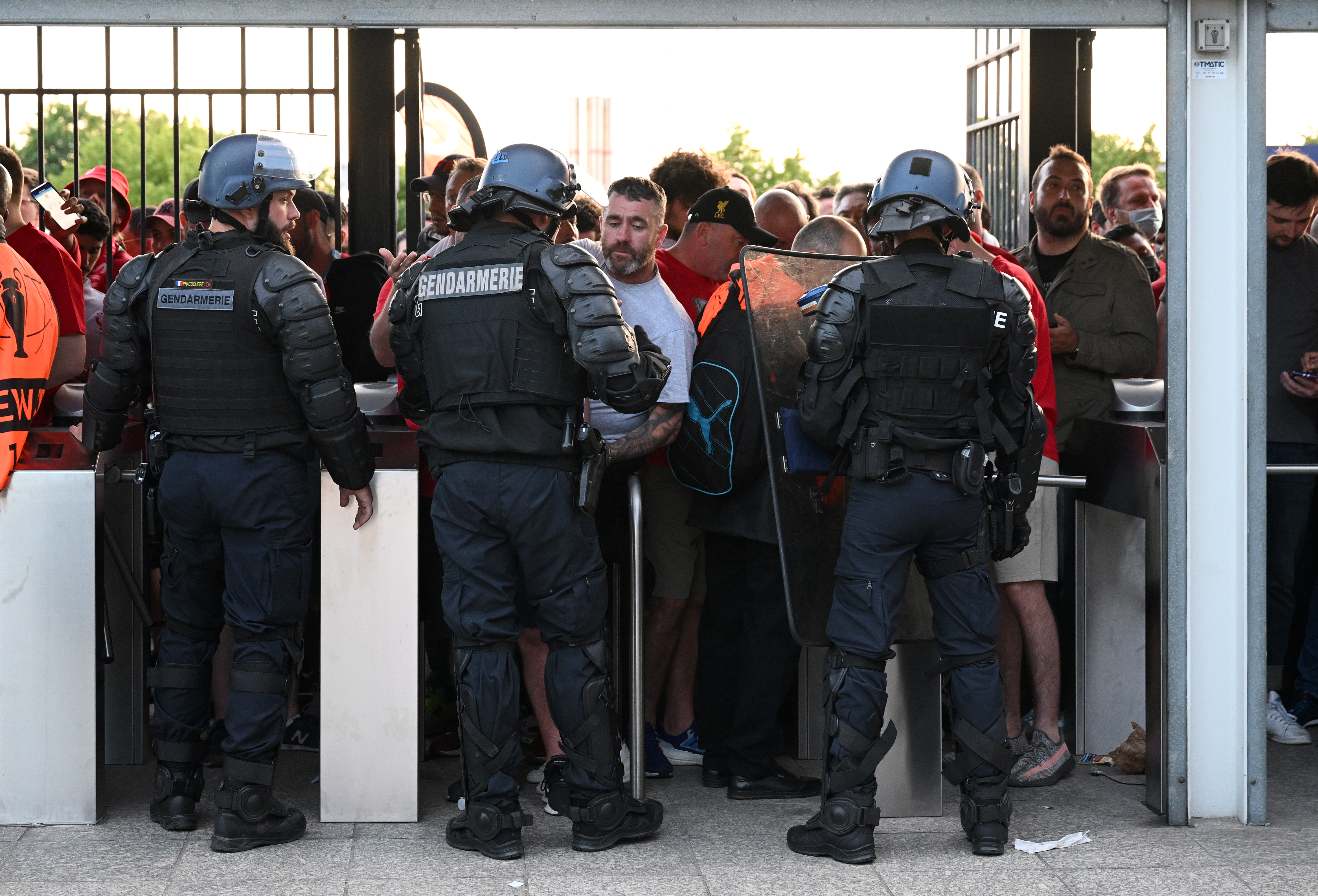
That so many immediately fall into line with the authorities’ lies on the juvenile and outright pathetic basis of tribal football rivalry is why police forces and governments are able to demean, disrespect, and harm football supporters with such regularity in France, the UK, the rest of Europe and beyond.
When incidents like this are brought about by the authorities, positive change could potentially be brought about by different groups of football supporters working together and refusing to let ill-treatment happen to one another. But as long as it’s not them, and as long as there are numbers to be earned in posting cringey bantz tweets, nothing seems particularly likely to change.
It might be Liverpool again next time. It might be somebody else. It might even be you.
But if those responsible for a level of disarray which could so easily have ended in catastrophe are allowed to blame a faceless mass of fans and remain unaccountable for their own dreadful shortcomings, then the one thing we can all be sure of is that no matter who is targeted next time, there will most certainly be a next time.
, .
, and .



















